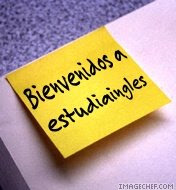Syntax
He/she/it - has
I/we/you/they - have ---- (HAVE , HAS >>>> AUXILIARIES)
I have been to many countries.
Carla has worked for five different companies.
They have studied English and French
Some past participle forms (irregular verbs)
be-- --was/were---- been
see ----- saw ------ seen
buy-----bought----bought
go------went --------gone
eat-------ate--------eaten
write---wrote ------written
leave----left---------left
put ------put--------put
Note:
The past participle form of the regular verbs is the same that in the past
Walk - walked - walked
talk- talked- talked
study - studied - studied
REVIEW: If you do not know what are regular and irregular verbs then click here to review the past simple tense (regular ans irregular verbs)
Negative form
I haven't been to Mexico
Jorge hasn't eaten Peruvian ceviche.
They haven't traveled by plane.
Question Form:
Have you ever been to Cusco?
Where have they studied English?
Has Anna ever danced regeaton?
USE:
We use present perfect to express and talk about experiences. By this we mean that we do care or want to say when something happened.
I have studied English >>> We do not say when, we just want to express that we have studied English some time in our life.
Ever: We use ever in questions to emphasis on experiences.
Have you ever been to Brazil? = Have you been to Brazil? (We put ever just to emphasis. It is not necessary but very common).
We use PAST SIMPLE if we say when we did something.
I went to Brazil in 1989.
ERROR : I have been to Brazil in 1989 >>> We CANNOT use Present Perfect when we focus on a definite point in the past.
Remember: If we focus on a definite point in the past we USE PAST SIMPLE. If we want to express experience we use PRESENT PERFECT.












